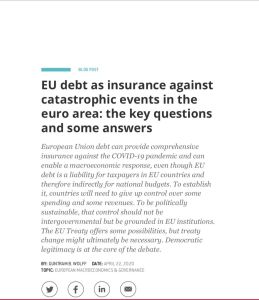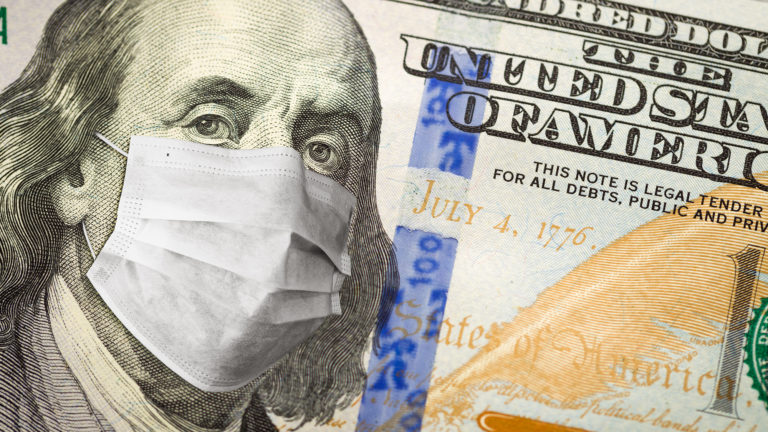Join getAbstract to access the summary!

Join getAbstract to access the summary!
Guntram B. Wolff
EU Debt as Insurance Against Catastrophic Events in the Euro Area
The Key Questions and Some Answers
Bruegel, 2020
What's inside?
European Union debt could help member states handle the costs of the coronavirus pandemic.
Recommendation
Policy makers in the European Union’s member countries must walk a fine line between inaction and misdirection in their search for a way to combat the economic malaise wrought by the coronavirus. EU-issued debt could serve as an effective, temporary backstop to bring some degree of relief to the region’s economies. As this astute analysis from economist Guntram B. Wolff reveals, this insurance instrument should derive from EU institutions rather than from national governments. Such an approach would be more politically viable, no small feat in the rough-and-tumble obstacle course that is the European Union.
Summary
About the Author
Guntram B. Wolff is the director of Bruegel, a European think tank.

























Comment on this summary